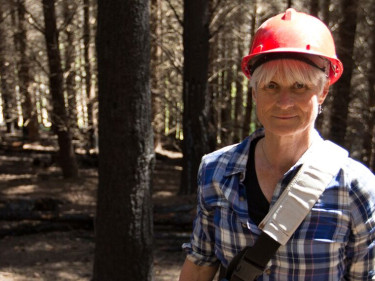Rural landowners face a high risk from fire because it often takes longer for fires to be detected and emergency responses can take a longer time to arrive.
Want to make sure your farm or rural business is fire safe? Here's a quick and easy checklist you can use to spot any risks or hazards that might cause a fire.
This checklist is for people who live or work on a rural property or business.
- If you own a home in an urban area, check out our urban home fire safety checklist.
- If you're renting in an urban area, check out our renter's home fire safety checklist.
Inside the home
- You have long-life photoelectric type smoke alarms in every bedroom, living area, and hallway - on every level of the property.
- You have suitable fire extinguishers in places where a fire might break out and they can be accessed quickly, e.g. near the kitchen or in the garage.
For more tips on fire safety in the home check out our rural home fire safety checklist.
Outside the home
- Your Rural Address Property Identification (RAPID) Number or road/street number is displayed in a place that's clearly visible to emergency vehicles.
- There's an easy way for emergency vehicles to access the property.
- You've established priority zones around your property to reduce the risk of fire damaging your home.
- You have a fire-fighting water supply that is accessible in an emergency, and clearly indicated.
Machinery and fuel
- Any petrol, diesel fuels and chemicals are stored in single-purpose locations.
- Rubbish, oily rags, firewood and anything else that could fuel a fire is stored correctly and away from ignition sources.
- All machinery is well maintained, with an appropriate exhaust system, installed to manufacturer specifications.
- Machinery has been cleaned regularly to ensure belly pans and spaces around motors are free of oil, dust, grease, grass and straw.
- There are no birds’ nests in or around machinery. You have suitable fire extinguishers fitted in farm buildings and on machinery.
For more information, see our guide to using machinery.
Property maintenance
- If possible, the lawn is mown and watered to reduce the risk of a vegetation fire (this may not be feasible during a drought).
- There's no firewood stacked up against a dwelling or farm building.
- Trees and branches are at least 3 metres clear of power lines. If not, talk to your local power authority.
- Any paddocks around farm buildings and yards are well grazed and not overgrown.
- Hay has been dried before baling and stacking to prevent spontaneous combustion.














